Health & Wellness
Sauna and Cold Plunge Routine: Unlock Health, Recovery, and Longevity
5 min read
If you haven't tried pea protein yet, you're missing out! This amazing plant-based protein is not only good for your health, it also has a ton of delicious recipes. In this blog post, we'll explore the many benefits of pea protein and share some of our favorite recipes. So whether you're looking to improve your health or simply want to try something new, check out pea protein!
To create pea protein, yellow peas are carefully harvested and washed until no dirt or debris remains. The peas are then processed through a special grinding process to separate the protein from the rest of the components. This is the purest form of pea protein aka organic pea protein powder!
Pea protein powder is increasingly popular among health and fitness enthusiasts due to it being a great source of vegan-friendly and easily digested plant based protein. Pea protein can help boost energy levels by delivering essential nutrients, including essential amino acids; which are the building blocks of muscle tissue. It has also been linked to improved cardiovascular health because pea protein contains arginine, an amino acid that helps support healthy veins and arteries. Furthermore, pea protein is gluten-free and low in carbohydrates; this makes pea powder an ideal choice for those looking to pursue a plant-based or low-carb diet.
Pea protein powder is becoming increasingly popular among health-conscious individuals due to its impressive nutritional content. A cup of dried split peas contains 45 grams of protein. When ground to powder it produces about one cup of protein powder. The commercial brand serving sizes generally equal the volume 14 cups per container and contain approximately 20 grams.
This makes pea protein powder a great alternative for people who aren't getting enough protein from meat and other food sources.
The answer is a resounding yes! Pea protein is an excellent source of quality vegan protein and is becoming increasingly popular as an alternative to animal-based proteins. Pea protein is chock full of vitamins, minerals, and amino acids vital to our health and is more easily digested by the body than other proteins, including other plant based proteins. When it comes to building muscle mass, pea protein is also ideal, with studies indicating it helps maintain a healthy metabolism while allowing all the beneficial nutrients to circulate properly in our bodies. Even those trying to lose weight can benefit from including pea protein in their diets, as it contains very little fat and no sugar. With its many benefits, it's no surprise why pea protein is quickly becoming one of the healthiest offerings out there.

 1
1
Pea protein promotes satiety (feeling of being full) and helps to reduce the number of calories consumed every day by controlling appetite. Peas are filled with essential minerals that aid weight loss because they work together with the body's hormones to suppress appetite and increase insulin sensitivity.
Pea protein offers a good amount of dietary fiber which not only helps with digestion but can also help stabilize blood sugar levels – another advantage if you have diabetes or prediabetes.The best part about peas is that one small serving goes a long way towards helping you meet your daily calorie and protein requirements.
 2
2
Peas are high in protein and low in fat and carbs. Peas also contain good levels of leucine (first place) and glutamic acid (second place), two essential amino acids responsible for muscle synthesis which makes it the perfect choice if your main goal is building lean muscle mass. Pea protein can be used as a daily meal replacement by those on vegetarian diets (used to replace animal proteins such as meat, chicken, or fish).
In one study conducted on healthy adult men, researchers found that when participants took a combination of pea protein and resistance training for 8 weeks, they experienced significant improvement in their strength levels as well as increases in lean body mass - just as much as compared to those who just did the exercise by taking whey protein.

Overall, pea protein has been proven to be effective at helping individuals build muscle as part of a balanced nutrition plan and regular exercise regimen. Consuming adequate amounts of this plant-based source of nutrition can help support your fitness goals while still providing your body with the essential nutrients it needs to stay healthy.

 3
3
Pea protein helps with bone health by providing a good source of phosphorus and being high in vitamins K, C, and A. These essential minerals help to promote calcium absorption for stronger bones, reduce inflammation which can cause damage to cartilage and joint tissue, as well as support collagen production for healthy joints and muscles.
Peas also contain compounds called saponins which can improve the body’s ability to absorb calcium – further contributing to bone health. Additionally, pea protein contains magnesium - an important mineral responsible for building strong bones - that may help prevent Osteoporosis in the long term.
 4
4
Pea protein helps to fight cancer by providing antioxidants which can help to neutralize free radicals, reduce inflammation and protect cells from oxidative stress. It is also rich in proteins and amino acids that are essential for optimal cell function and can boost the immune system.
In addition, pea protein contains a special type of polyphenol called saponins (mentioned above) which have been proven to slow tumor growth. Finally, it also provides a good source of dietary fiber that can help to support healthy digestion and nutrient absorption while maintaining hormone balance in the body. All these factors combined make pea protein a potent anti-cancer weapon when added as part of an overall healthful diet.
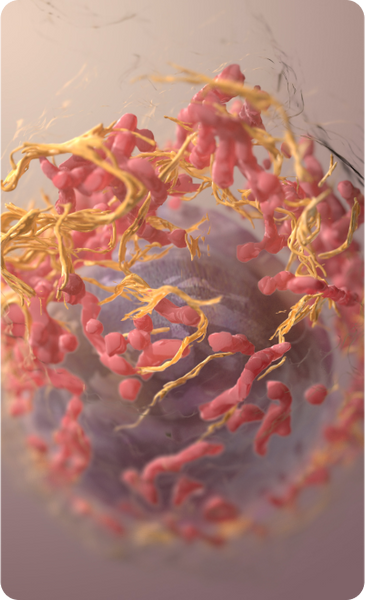

 5
5
Pea protein can help with heart disease by providing essential vitamins, minerals, proteins and amino acids that all work together to reduce cholesterol levels, lower blood pressure and promote healthy cardiovascular function. Pea protein can also help maintain a healthy metabolism while aiding in weight management which further reduces the risk of cardiovascular issues. Furthermore, pea protein helps fight inflammation in the body, which is known to be a contributing factor to various heart diseases.
In addition to these benefits, pea protein contains good levels of omega-3 fatty acids which have been linked to reducing inflammation throughout the body and promoting overall cardiovascular health.
Additionally, pea protein helps reduce blood pressure, inflammation, and risk for cardiovascular disease by removing excess nitrogen from the body via urine. Lastly, research has found that individuals who consume higher amounts of plant-based proteins like peas have significantly reduced their risk for developing heart disease compared with those consuming animal proteins or no proteins at all!
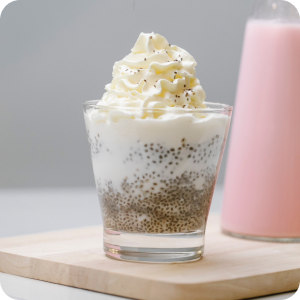
This deliciously creamy shake combines the nutritional benefits of pea protein with chia seeds, which are a great source of fiber and omega-3 fatty acids.
In a blender, combine
Blend until smooth. Serve with a sprinkle of cinnamon for an extra boost of flavor!
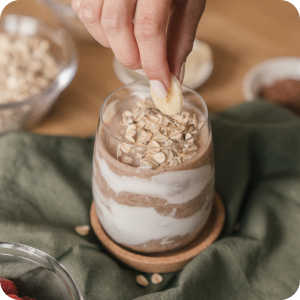
For a sweet and creamy blend that's sure to satisfy your taste buds, try this delicious peanut butter banana shake!
In a blender, combine
Blend until smooth and pour into a glass or jar. If desired, top with sliced bananas or chopped nuts for added texture.
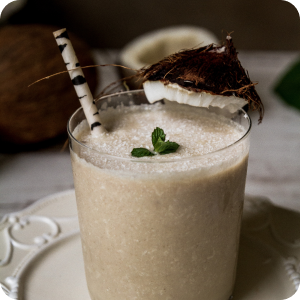
For those craving something more indulgent than the average shake, try this divine combination!
In a blender, combine
Blend until smooth and pour into a glass or jar. Top with shredded coconut flakes and/or dark chocolate chips for an extra boost of flavor!
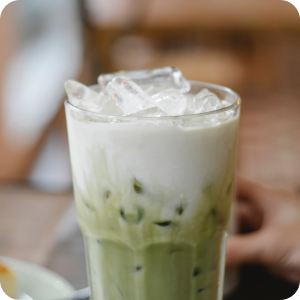
Green tea matcha is packed full of antioxidants making it the perfect addition to any health conscious diet – especially when combined with pea protein!
In a blender, combine
Blend until smooth and enjoy! You can also add in some honey or maple syrup if you prefer your shakes on the sweeter side!
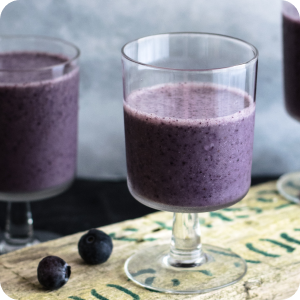
This fruity blend combines the flavors of fresh berries with creamy nut butter for an unbeatable combination!
In a blender, combine
Blend until smooth then pour into a glass or jar for an irresistible shake that's sure to please even the pickiest eaters!
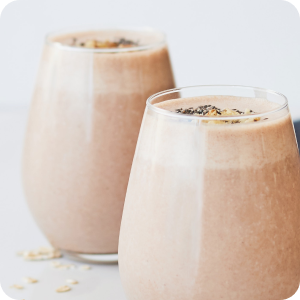
Take
Blend until smooth, add in some crunchy cacao nibs for some chocolate flavor without adding extra sugar.
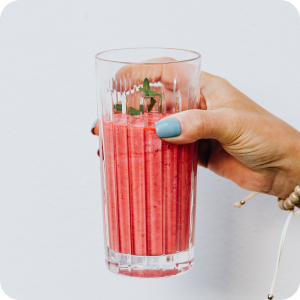
Blend together
Add in some cayenne pepper, himalayan pink salt to taste, and some fresh mint leaves for an overall refreshing drink.

Blend together
Add in some stevia or sweetener of choice then top off the rest of the glass with ice cubes. You can also add vanilla or lemon extract if you want it to be more flavorful.
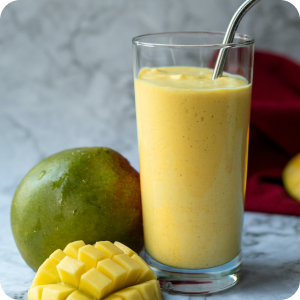
For a light and refreshing tropical twist on your traditional protein shake, try this combination!
In a blender, combine
Blend until smooth and enjoy! The mango adds a nice creamy texture while the coconut flakes give it an extra boost of flavor with its nutty notes.
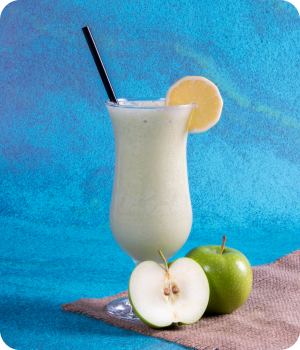
If you're looking for something more indulgent yet still healthy, then this shake is sure to hit all the right spots!
In a blender, combine
Blend until smooth then pour into a glass or jar. Top with chopped walnuts or almonds for added crunch and you've got yourself a tasty treat that's sure to bring back memories of Grandma's apple pie! Apples are a great source of dietary fiber which helps support gut health as well as aiding in digestion.
If you're wondering how pea protein stacks up against other alternative protein powders, here it is:
The most common side effect associated with pea protein is digestive distress. Since pea proteins are high in fiber, they can cause bloating, gas, and stomach discomfort in some people. Those who are new to taking pea protein should start with smaller doses and slowly increase their dosage as they become more accustomed to the supplement. Additionally, drinking plenty of water throughout the day can help reduce gastrointestinal issues associated with taking pea protein powder.
Another potential side effect of pea protein is increased fatigue. This occurs when the body is not getting enough carbohydrates from other sources such as fruits and vegetables; this causes the body to break down its own muscle tissue for energy instead of breaking down carbohydrates which can lead to depleted energy levels due to lack of sufficient fuel sources. To prevent this from happening, be sure to include complex carbohydrates in your diet such as whole grains, fruits, and vegetables when taking pea protein supplements or powders.
Lastly, people who are allergic or sensitive to legumes may experience an allergic reaction when taking pea protein powder due to its legume-based nature. The signs and symptoms of an allergic reaction include hives, itching sensations on the skin or lips, swelling of the face or tongue, difficulty breathing or swallowing and nausea or vomiting.
Additionally, always keep an epinephrine auto-injector (EpiPen) nearby if you have a known history of severe allergies just in case of emergency situations that require immediate medical attention.
In conclusion, pea protein is a great way to get the essential amino acids and vitamins your body needs without relying on animal-based proteins. Pea protein powder benefits include weight loss, fighting against cancer, gain of lean muscle mass, and cardiovascular disease prevention.
While there are some potential side effects such as digestive distress, fatigue and allergic reactions that you should be aware of before taking any form of supplemental protein powder, these can generally be avoided by following proper nutritional guidelines while slowly increasing dosages over time. Ultimately, this makes pea protein an excellent choice for anyone looking to increase their daily intake of plant-based nutrition in order to support overall health and performance goals!
Pea protein has many advantages over traditional protein sources. It is high in essential amino acids like arginine, lysine, and branched-chain amino acids (BCAAs), which are important for muscle growth and repair. Additionally, pea protein typically contains higher levels of iron and zinc than other types of protein, making it an excellent choice for those looking to boost their mineral intake. Pea protein is also more easily digested than other sources of protein, meaning it can be absorbed faster and more efficiently by the body.
Yes, you can build muscle consuming pea protein powder. Studies have also shown that when pea protein is combined with weight training or exercise regimens, it can help increase lean muscle mass and improve overall body composition.
Pea protein is a highly nutritious source of plant based nutrition, and is often considered to be a "superfood" due to its impressive range of health benefits. It contains the essential amino acids that the body needs in order to build and repair muscle tissue, maintain healthy bones, aids in cardiovascular health and cancer prevention, and supports overall metabolic function. Pea protein is also a great source of iron and zinc—two key minerals that are essential for overall health. Iron helps maintain red blood cells, while zinc helps support immune system function. Both minerals are important for optimal energy production as well as cognitive development. In addition to these two crucial vitamins and minerals, pea protein offers significant amounts of magnesium, potassium, copper, manganese and phosphorus—all important nutrients for supporting various bodily functions. Perhaps most notably of all is the fact that pea protein provides an excellent balance between quality proteins and carbs without the extra calories associated with other sources of animal-based proteins. This means that you can still get the same level of nutrition without having to add more calories into your diet—making it even easier to manage your weight while still getting sufficient amounts of high-quality nutrition. All in all, pea protein is definitely considered a superfood due its impressive nutritional profile as well as its potential health benefits. It can provide an excellent source of plant-based nutrition when taken as part of a balanced diet – helping individuals meet their daily nutritional needs while staying within their desired calorie goals.
A protein hydrolysate is a partially digested protein powder - this process involves breaking down the protein into smaller strands so it's easier to digest. It potentially fuels greater delivery of amino acids to your muscles. Pea protein hydrolysate is a type of protein powder made from yellow peas, which is broken down into smaller pieces for easier digestion.







Monitor your caffeine intake for peak energy and wellness.

Track your daily sugar intake and stay within healthy limits.

Analyze your meals and ensure balanced nutrition for a healthier lifestyle.

Evaluate your sleep needs to optimize rest and overall well-being.

Discover your daily water needs to stay hydrated and energized.

Assess your hydration levels and keep your body refreshed all day.

Find your target heart rate for effective workouts and fitness progress.

Track calories burned during activities and monitor your fitness goals.

Quickly check your Body Mass Index and health category for better wellness.